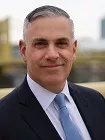- with Inhouse Counsel
- with readers working within the Business & Consumer Services, Retail & Leisure and Construction & Engineering industries
On February 22, 2023, the U.S. Department of Justice ("DOJ" or "Department") announced the Voluntary Self-Disclosure Policy ("VSD Policy" or "Policy"), detailing the circumstances under which a company can receive credit for voluntarily self-disclosing criminal conduct to U.S. Attorneys' Offices ("USAOs"). This represents a shift in corporate enforcement at the USAOs, which had generally lacked formal policies for self-disclosure credit and applied varying and nontransparent approaches on an office-by-office basis.
The VSD Policy, which is effective immediately, aims to standardize how USAOs define and credit "voluntary self-disclosure" by companies across the country. The Policy is meant to provide enhanced transparency and predictability for companies contemplating self-reporting corporate misconduct. In particular, the VSD Policy is intended to standardize the treatment of companies that satisfy the criteria set forth in the Policy across the USAOs.
In this White Paper, members of the Jones Day Investigations & White Collar Defense Practice, including our eight former U.S. Attorneys, discuss the VSD Policy and offer key takeaways that companies should bear in mind.
INTRODUCTION
DOJ continues to incentivize self-disclosure by companies that learn of potential criminal misconduct. On February 22, 2023, Damian Williams, U.S. Attorney for the Southern District of New York, and Breon Peace, U.S. Attorney for the Eastern District of New York, announced a new USAO VSD Policy. The VSD Policy provides a national standard for companies to obtain credit for voluntarily self-disclosing potential misconduct to a USAO. A company that self-discloses to a USAO and otherwise meets the VSD Policy's requirements may receive significant benefits, such as the USAO declining to seek a guilty plea against the company. The VSD Policy is effective immediately and applies to all 94 USAOs.
The announcement follows Deputy Attorney General ("DAG") Lisa Monaco's September 2022 memorandum (the "Monaco Memo"), which outlined changes to DOJ's approach to corporate criminal enforcement. Specifically, the DAG directed each DOJ component that prosecutes corporate crime to review its policy on voluntary self-disclosure, and if no such policy exists, to draft and publicly share one. In response, the Attorney General's Advisory Committee ("AGAC"), under the leadership of U.S. Attorney Williams, requested that the White Collar Fraud Subcommittee, under the leadership of U.S. Attorney Peace, develop such a policy. A Corporate Criminal Enforcement Policy Working Group, comprising U.S. Attorneys from several different districts, prepared the VSD Policy, which the Office of the DAG approved.
In January 2023, the Criminal Division also responded to the DAG's direction by announcing revisions to its Corporate Enforcement and Voluntary Self-Disclosure Policy (the "CEP"). Given the Criminal Division's—particularly the Fraud Section's— frequent work alongside USAOs in joint prosecutions, the CEP's guidance is particularly important to consider in evaluating the VSD Policy. The CEP contains incentives and requirements similar to those set forth in the VSD Policy. However, among other differences, the CEP provides greater incentives for compliance than does the VSD Policy, most critically with respect to the likelihood of a declination of prosecution. Under the CEP, a company that voluntarily self-discloses, fully remediates, and fully cooperates will qualify for a presumption of a declination of prosecution, absent certain aggravating factors.
Even if aggravating factors are present, a company may still qualify for a declination under certain circumstances. By contrast, the VSD Policy does not provide for any circumstances in which a presumption of declination will apply. Instead, the VSD Policy contemplates the possibility of a non-prosecution agreement ("NPA") or deferred prosecution agreement ("DPA") as alternatives to declination, even for companies that meet the VSD Policy's requirements and absent any aggravating factors. Notably, the VSD Policy expressly states that a USAO may work with other DOJ components with different disclosure policies, or choose to apply another component's voluntary selfdisclosure policy in place of the VSD Policy itself.
The VSD Policy, which applies only to USAOs, aims to create further incentives for companies to self-disclose suspected misconduct and to provide "transparency and predictability" for companies contemplating self-disclosure. The VSD Policy specifies companies that voluntarily self-disclose to a USAO will receive resolutions under more favorable terms than if the USAO had learned of the misconduct through other means.
To view the full article click here
The content of this article is intended to provide a general guide to the subject matter. Specialist advice should be sought about your specific circumstances.

















